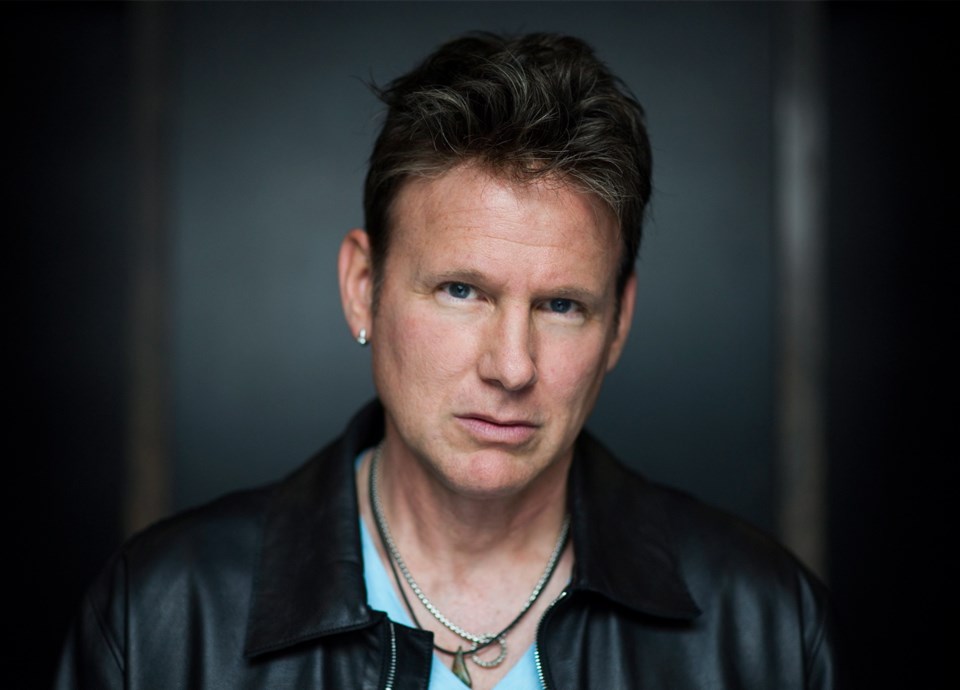MONTREAL — This Saturday, Corey Hart will mark his 52nd birthday, he will take the stage at the Bell Centre in Montreal for a hometown concert that he insists will be his last and he will release a candid memoir that even his beloved wife has not read in full.
And yet, if the erstwhile teen idol felt burdened under the weight of this pending convergence of major life events, it hardly showed Monday as he sat down in Montreal to discuss the end of a performance career that has spanned more than 30 years. Looking youthful in a snug V-neck coloured the same sky blue as his eyes, wrists and neck bedecked in jewelry — Hart spoke only of how excited he was to begin rehearsals a day later, how his setlist had swelled to 36 songs separated into two acts and how he savoured the opportunity to finally perform in front of his four children.
In his book, he relays the wisdom of Quebec promoter Louise Laliberte, who warns that a performer should never pronounce a show his or her last because one just never knows. But Hart is certain. He knows, and the Sunglasses at Night singer is closing out his performing career with clear eyes.
“The thing is, Louise knows me — but she doesn’t know me that well,” he said. “When I say, emphatically, that this is goodbye, this is a farewell, this is a full stop as far as me being a live performer, I’ll prove myself right in the years to come.
“She warned me not to say that it’s my last one,” he said, a smile spreading, “but I never really listen when people tell me what to do.”
Indeed, one word that Hart uses to describe himself more than a half-dozen times over the course of this interview is “stubborn.”
As he lays out in the gorgeously illustrated Corey Hart: Chasing the Sun, it’s a quality that allowed him to succeed in the first place. After graduating his Montreal high school — just barely, he notes — he set off to New York as a teenager uncommonly determined to make it as a singer/songwriter (and only a singer/songwriter, as he’ll explain later), refusing to be deterred by the industry’s initial indifference.
His single-mindedness was understandable given his upbringing. Hart, somehow, always seemed destined for rock stardom, experiencing an atypical flirtation with the industry as early as pre-adolescence. He auditioned for Tom Jones at 10 years old, sang to tape with Paul Anka in Las Vegas at 11, brushed shoulders with Christopher Cross at 18 and recorded a demo with Billy Joel’s band a year later. Guitar legend Eric Clapton plays Dobro on Hart’s debut, First Offense, released before the singer had even turned 20.
Besides featuring the ice-cold synth vamp Sunglasses at Night — a career-cementing No. 7 hit in the U.S., with a video as durably appealing as the Ray-Bans he memorably sports — the record includes another Top 20 American hit in the tender ballad It Ain’t Enough.
Listening now, it’s an undeniably ’80s affair, from the ribbons of lonely alley saxophone threaded throughout, to the Lite-Brite keys and ever-present chorus of backup vocals.
But off-trend production flourishes aside, the record is also notable for the fledgling singer’s wildly impassioned vocals and the fact that a teenage Hart composed all 10 tracks, already firmly intent on lyrical depth.
As he reveals in his memoir, Peruvian Lady was written about the drug addiction that claimed his father and sister, The World is Fire was inspired by the night Hart learned of his dad’s infidelity and Jenny Fey documented the depression that enveloped his mother afterward.
Still, most of the press focused on Hart’s appearance, an element the singer reluctantly exploited early on — the cover of First Offense was redesigned for the U.S. with Hart’s top shirt buttons popped open and his pinup-worthy brooding pout dragged to the fore — before growing frustrated by his pop-puff dismissal by music critics.
“I did obviously feel that when I was in my 20s, no one even bothered to notice or made light of the fact that I was a singer/songwriter and that I wrote all my songs and that I didn’t co-write my songs. I was a purist in the fact that all my words and music were from me,” he said.
“I didn’t think that critics really took my work seriously or bothered to delve a little deeper into what I was writing. But I don’t hold any animosity or any anger toward it.
“They may have delved deeper into it and not liked it at all. So maybe I got lucky, you know?”
The situation didn’t necessarily improve, even as Hart proved himself on subsequent albums. Sophomore record Boy in the Box was a greater success than his debut — reaching diamond certification in Canada with chart-topping singles in Everything in My Heart and Never Surrender — while 1986’s Fields of Fire went double platinum and 1988’s Young Man Running and 1990’s Bang both reached platinum certification.
His self-titled 1996 reinvention — which he considers the pinnacle of his artistry — also scored platinum certification here but never secured a U.S. release, along with 1998 followup Jade. He attributes the situation to record-label politics and calls it a “great disappointment.”
Otherwise, he doesn’t seem to carry many regrets. His insistence upon performing only his own songs did cost him some hits — he notes casually that he had the opportunity to record Danger Zone for the Top Gun soundtrack but passed, thus allowing Kenny Loggins to take it to No. 2 instead — but such “foolish career decisions” were made so he could stick to a “certain artistic template.”
“Being true to yourself, in the end, is important,” he said.


-thumb.png;w=120;h=80;mode=crop)
